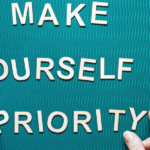The last few years have brought changes in the world that most adults never thought we’d see in our lifetimes.
We can only imagine how scary it must be to be a kid right now.
Mass shootings in their schools. A global pandemic. A war in Europe.
What can we tell them about what’s happening?
The truth is, there are limits to what we can say. Most adults struggle to understand these things themselves, let alone provide comfort to younger people about why terrible things happen in the world.
However, there are a few pieces of wisdom we can rely on, no matter how bad things have been.
They’re perfect to tell kids if they’re worried about the world and you don’t know what to say… and they can be helpful for adults too.
The world is much bigger than any one day or event, no matter how bad things currently seem.
It’s important to look at history and the bigger picture. Despite all the atrocities throughout history, the world is still a generally safe and good place where statistically:
Things really are getting better.
While we tend to focus on problems, the truth is that crime rates, violence, and quality of life are improving all the time for more and more people all over the world. If things seem to be getting worse, it’s often because a) bad news is more likely to get reported, and b) our brains are wired to pay more attention to bad news.
Empathy is a superpower, but all superpowers have a kryptonite.
Raising empathetic children is important for their long-term social and mental well-being. But the constant news cycle of real-world tragedy means that empathetic people can easily and constantly feel the pain of others. Being trapped in this kind of cycle is never good, and this is true no matter what age. Here’s where it’s helpful to remember that:
You’re safe here and now.
The event is not happening where you are, and at this moment, you are safe and protected and ok. Also, remember that:
Something bad happened today, but that doesn’t mean it will happen again tomorrow.
The reason that mass tragedies are so scarring is precisely because they violate our expectations of what’s normal. We all have a tendency to think that if the worst can happen, then the likelihood is greater that it will happen. In reality, mass tragedies are the exception, not the norm.
It’s OK to turn off the news after it’s served its purpose.
The media is there to inform, not depress or scare. Ruminating on bad news (aka doom scrolling) can reinforce self-destructive thoughts or feelings of helplessness. It’s good to recognize when there’s no real benefit to staying tuned into the news. Sometimes adults do well to remember this too. However…
…it’s ok for your heart to break when you hear of people suffering,
even if you didn’t know them personally. We are taught to believe that happiness should be our norm and sadness must always be banished. If your heart is broken, it means that you care and caring is part of being a good person— which matters because,
Good people make the world a better place.
Even if it’s just putting a smile on somebody else’s face, showing kindness to a stranger, or a simple act of courtesy, every day, good people still make the world a better place and have a much more widespread, positive impact every day than the bad people or isolated events.
It’s ok to smile.
Sometimes when we hear about tragedy, it feels wrong to smile, but we should tell kids that if they feel reason to smile, it’s ok. In smiling, we temporarily forget the pain, and sometimes feel guilty afterwards. However, this is part of the normal grieving cycle of processing what happened. Smiling is as much a part of the grieving process as the tears. But the most important message we can pass on our children about cope with tragedy is that:
Love always wins.
This is why things trend up, why it’s good people who make the world a better place, and why the world will always be bigger than any one day or event. And the most important lesson we can teach our children is to:
Take action.
Kids have been shown to process emotions better when they know they can take action that will have a positive impact. When it comes to mass tragedies, one of the best ways kids can help is to reach out to others in pain. This is why Stars of HOPE sends messages of hope to victims all over the world, and loved ones close to the tragedy, to help heal their broken hearts.
Learn all about how Stars of HOPE works here, and read all about how the organization helps people emotionally heal after going through the unimaginable.




